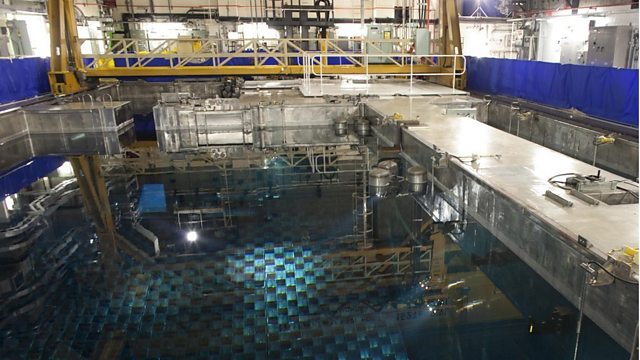Uranium is the fuel for nuclear power stations, which generate carbon-free electricity, but also highly radioactive waste, posing a major dilemma for environmentalists.
Uranium is the fuel for nuclear power stations, which generate carbon-free electricity, but also radioactive waste that lasts a millennium. In the latest in our series looking at the world economy from the perspective of the elements of the periodic table, Justin Rowlatt travels to Sizewell in Suffolk, in a taxi driven by a former uranium prospector.
He is given a tour of the operational power station, Sizewell B, which generates 3% of the UK's electricity, by EDF's head of safety Colin Tucker, before popping next-door to the original power station, Sizewell A, where he speaks to site director Tim Watkins about the drawn-out process of decommissioning and cleaning up the now-defunct reactors.
But while Sizewell remains reassuringly quiet, big explosions come at the end of the programme. We pit environmentalist and pro-nuclear convert Mark Lynas against German Green politician Hans-Josef Fell, the joint architect of Germany's big move towards wind and solar energy, at the expense of nuclear. Is nuclear a green option? It really depends whom you ask.
(Photo: Perdiodic table)
Last on
Broadcasts
- Thu 19 Feb 2015 13:05GMT大象传媒 World Service Online
- Thu 19 Feb 2015 20:05GMT大象传媒 World Service Online
- Sun 22 Feb 2015 01:32GMT大象传媒 World Service Online
- Sun 22 Feb 2015 10:32GMT大象传媒 World Service Online
Podcast
-
![]()
Elements
Chemical elements: where do we get them and how do they fit into our economy?


